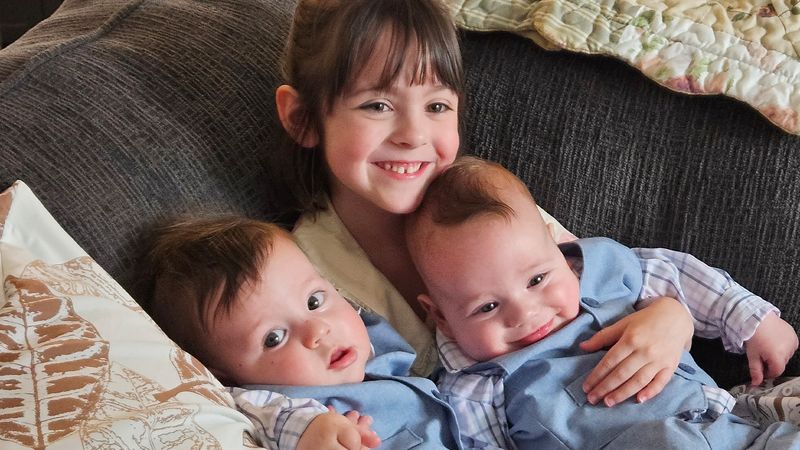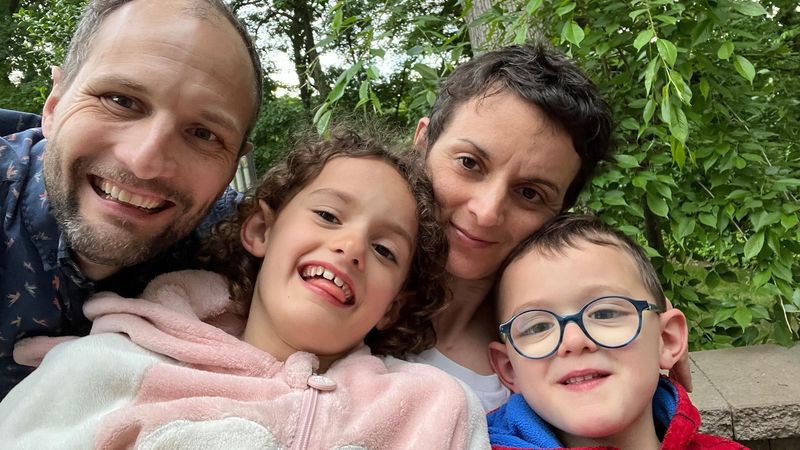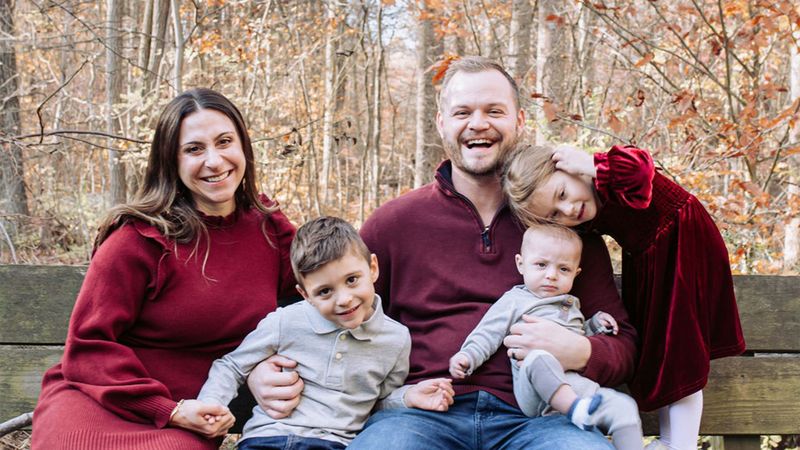Milestones in Medicine: Respiratory Syncytial Virus (RSV) Prevention Comes of Age

By Ayman Chit, Head of Vaccines Medical, North America
Watching a child grow can be one of life’s most profound experiences. Milestone “firsts” help us mark the changes—a first smile, first steps, first words. So many first days give us moments to reflect on how much, and how quickly, everything can change, and how quickly something new becomes a vital thread in the fabric of life.
Ahead of RSV Awareness Month, I had the privilege of speaking with Dr. Mona Amin, a pediatrician and mom, about another kind of milestone: the evolution of RSV prevention. What was once a landscape of limited options has matured into prevention options available for all infants—shaped by science, compassion, and the voices of families.
Listen to Ayman’s full conversation with Dr. Amin.
Why RSV Deserves Our Attention
RSV often flies under the radar until it hits close to home. Yet, serious RSV lung infection has long been the number one reason for hospitalization in babies under 1 year old. While RSV typically presents as a mild, cold-like illness, it can quickly progress to a serious lung infection.
Dr. Amin shared how RSV affects not just babies, but entire families. “It’s heartbreaking to watch a baby struggle to breathe,” she said. “Even healthy, full-term babies can end up in the hospital.”
In fact, 2 out of 3 babies will get RSV before age 1. When RSV spreads to the lower lungs, it can cause inflammation and serious breathing difficulties.
A Turning Point in RSV Prevention
Before RSV prevention was widely available, Dr. Amin often had to send babies with serious RSV to the emergency room. Today, thanks to options like Beyfortus (nirsevimab-alip) 50mg and 100mg, the story is changing.
Beyfortus is a prescription medicine used to help prevent a serious lung disease caused by respiratory syncytial virus (RSV) in:
- Newborns and babies under 1 year of age born during or entering their first RSV season.
- Children up to 24 months of age who remain at risk of severe RSV disease through their second RSV season.
Beyfortus should not be given to children with a history of serious allergic reactions to nirsevimab-alip or any of the ingredients in Beyfortus. Beyfortus may not protect all children. See below for additional Important Safety Information.
A Message to Parents
The message from families is clear: Parents want to make the right choice for their babies. They want to help protect, prevent, and be proactive.
So here are your first steps:
- Talk to your baby’s doctor about RSV prevention
- Ask about Beyfortus
- Visit Beyfortus.com
This RSV season, make it part of your plan to have your baby Beyrified™—verified they got Beyfortus, a layer of protection against serious RSV lung infection. When we help protect our babies, we are changing the story.
IMPORTANT SAFETY INFORMATION
Your child should not take Beyfortus if your child has a history of serious allergic reactions to nirsevimab-alip or any of the ingredients in Beyfortus.
Before your child receives Beyfortus, tell your healthcare provider about all of your child’s medical conditions, including if your child:
- has ever had a reaction to Beyfortus.
- has bleeding or bruising problems. If your child has a problem with bleeding or bruises easily, an injection could cause a problem.
Tell your healthcare provider about all the medicines your child takes, including prescription and over-the-counter medicines, vitamins, and herbal supplements. Your infant should not receive a medicine called palivizumab if they have already received Beyfortus in the same RSV season.
Serious allergic reactions have happened with Beyfortus. Get medical help right away if your child has any of the following signs or symptoms of a serious allergic reaction:
- swelling of the face, mouth, or tongue
- difficulty swallowing or breathing
- unresponsiveness
- bluish color of skin, lips, or under fingernails
- muscle weakness
- severe rash, hives, or itching
The most common side effects of Beyfortus include rash and pain, swelling, or hardness at the site of your child’s injection. These are not all the possible side effects of Beyfortus. Call your healthcare provider if you have questions about side effects.
INDICATION
Beyfortus is a prescription medicine used to help prevent a serious lung disease caused by Respiratory Syncytial Virus (RSV) in:
- Newborns and babies under 1 year of age born during or entering their first RSV season.
- Children up to 24 months of age who remain at risk of severe RSV disease through their second RSV season.
Please see full Prescribing Information, including Patient Information, for more details.
Dr. Amin was compensated for her time in participating in this interview. Remember, each RSV scenario may be unique for each baby and therefore, be sure to ask your baby’s doctor about any questions you may have.
Read More About the Impact of RSV

Why Helping to Protect Infants Against Serious RSV Lung Infection is Personal to Me

Preparing to Deliver: We’re Ready to Help Protect Babies This Winter Virus Season
